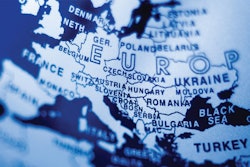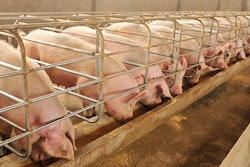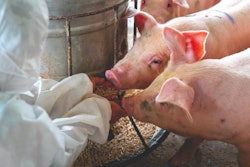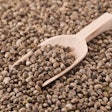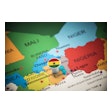Manual is a valuable tool to improve feed production safety
The International Feed Industry Federation (IFIF) and the Food and Agriculture Organization of the United Nations (FAO) have launched the new “Manual of Good Practices for the Feed Sector: Implementing the Codex Alimentarius Code of Practice on Good Animal Feeding” at their joint annual meeting.
The manual was first published in 2010 and has been a valuable tool to increase knowledge and improve feed safety at the production level, and it is widely recognized and used in many countries around the world. This second publication is a fully revised, updated and expanded version of that manual and addresses recent developments in feed production and benefits from the latest scientific and technical knowledge.
The objective of the manual is to provide comprehensive information and practical guidelines to farmers, producers and all stakeholders along the feed value chain to comply with the requirements of the Codex Alimentarius Code of Practice on Good Animal Feeding. The application of the code is an important step for the expansion of international trade of feed and products of animal origin. Feed/food exporting and importing countries can benefit from a greater and safer trade of feed and products of animal origins.
This manual is intended to guide managers of feed mills, the feed industry as a whole and on-farm feed mixers and producers. It will also be of value to national competent authorities, in particular those engaged in feed inspection, in their supervisory roles. It can also serve as a training manual and a guide to setting up national feed associations.
Daniel Bercovici, IFIF chairman, highlights that “this manual is a key result of the longstanding and strong collaboration between IFIF and FAO and serves as an important tool to promote feed safety, which is a key element in the sustainable production of food of animal origin: it is a prerequisite for food safety and human health, as well as a necessity for animal health and welfare.”
Daniela Battaglia, animal production officer at the Animal Production and Health Division of the FAO, said: “FAO and IFIF have a longstanding partnership. Together they also strive to promote feed safety globally as a component of access to trade, income generation and sustainability. In fact, feed is an integral part of the food chain and its safety has been recognized as a shared value and a shared responsibility.”
Alexandra de Athayde, IFIF executive director, adds that this “new manual also serves as the basis of the IFIF Capacity Development training program and the IFIF feed safety elearning course. Both IFIF and FAO hope this manual will meet the expectation of a constantly evolving sector and will continue being an essential tool to support producers living up to their roles and responsibilities to ensure sustainable food production and feed a growing world population.”


